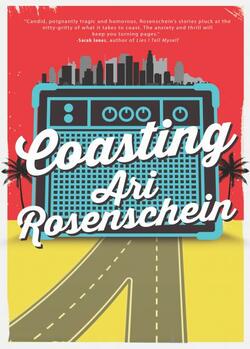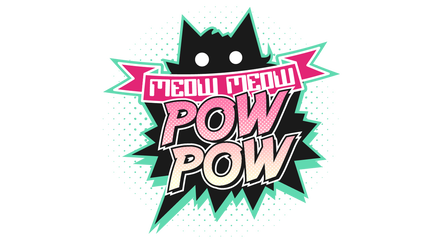|
3/9/2019 Coasting by Ari Rosenschein
https://open.spotify.com/user/arishine/playlist/1DvvANyDcpj2FMOOiG9Fhc?si=8_ljhccRT8-C382exRmpFg

<iframe src="https://open.spotify.com/embed/user/arishine/playlist/1DvvANyDcpj2FMOOiG9Fhc" width="300" height="380" frameborder="0" allowtransparency="true" allow="encrypted-media"></iframe>
Coasting by Ari Rosenschein Review by Levi Rogers Wait. Before you read any further, before you take another breath, take a second to open the above link. It's a Spotify playlist curated by the author we are reviewing today, Ari Rosenschein--who has written a fantastic book, primarily about music. If you can't get the link to work, just search for Ari Rosenschein on Spotify and look for his public playlist: Schemers and Dreamers: A Playlist Inspired by Coasting. So, got it? Now, grab a cup of coffee, click on the link, download Spotify if necessary, and resume reading below. Thank you and good day. -The Esteemed Editors Coasting By Ari Rosenchein The debut collection of short stories from Ari Rosenschein, Coasting, rolls between Los Angeles and San Francisco as it explores the lives of rock and pop star wannabes, transients, junkies, 12 steppers, music teachers, label producers, record store clerks, female punk bands, techies, and tattoo lovers. Music is the main glue that holds this book together and like the HBO anthology show High Maintenance, Coasting takes a theme—music, or perhaps more specifically, musicians and other characters whose lives loosely revolve around music—and uses it as a jumping off point to look at friendship, relationships, gentrification, lifestyle cults, sex, dating, and the desire for success and happiness that always seems to elude them. Many of these “alternative” and “counter-cultural” characters now occupy the mainstream culture of 2018 though, and for some reason this occupied much of my thoughts while I read the book. Did this make the characters of Coasting and their dilemmas less authentic? Or was I projecting some irrelevant social commentary? I’d like to eschew the words “hipster,” “alternative,” and “indie” however, to describe the many people and places in Coasting (as these words have become so generalized that they mean nothing) though these would probably be the buzzwords in popular culture to describe the urban setting of specialty coffee shops, tattoo parlors, dirty apartments, dive venues, and vintage instrument stores the book is set in. Yet as with “nerd-culture,” tattoos and hardcore are mainstream now, for better or worse, and as I read Coasting I found myself mourning a time when the lifestyles and music of certain groups of people were not printed for sale in malls or available to purchase on any street corner—but maybe I’m just getting old. Yet Coasting feels familiar, almost too familiar to me at times, as I felt like I myself and many people I know could be characters within the book (I love Alexander’s Brite Spot café along with obscure 90’s Olympia bands). I don’t mean to say that because of all this Coasting is therefore less unique. The intimate way in which Rosenschein writes about many of the these “sub”-cultures (even if they are Culture with a capital C) are the best part about the book. You can tell that this is someone who has played music and dated and performed and drank and ate with and at and in many of these same locales (or knows people who did). Most of these characters are “coasting” to some degree after all. They are outside of 9-5 white collar jobs and domestic partnerships, aren’t driving Subaru’s or Mercedes, and I appreciated this. Even if there is no such thing as a “sub-culture” in this globalized day and age there are still people on the fringes who often don’t get a place in literary works. I think Coasting is important for this reason and personally found the stories involving a transient traveler along with the story of a panhandler and a junkie college kid to be the most emotionally resonating. Rosenschein’s prose really flies off the page when he’s describing his various characters and the settings they find themselves in. With just a few well-placed descriptors he can perfectly conjure an image of a person we’ve all seen before and may even know intimately: A Billabong hoodie on a college kid junkie, a Black-Dahlia t-shirt on another getting a tattoo, a “Pabst-gut,” an “Amy’s Pad Thai Frozen Dinner” or the Nickelback-like appearance of another character, all do wonders. The appearance of and musical tastes of the characters often do a lot of the leg work to translate the names on the page into fleshed out characters. The neighborhoods, restaurants, venues, bands, and pop-culture references that permeate Coasting—Los Feliz, Sunset, Intelligentsia, Vons, Game of Thrones, and Sleater-Kinney, just to name a few—make the book feel uniquely regional and modern, and yet also echo the many musicians and actors and transients we’ve come to associate with Los Angeles and San Francisco in previous decades. It’s contemporary 2018 and yet calls back to other eras without delving too far into nostalgia. I personally would have loved to see some of the stories take place somewhere outside of L.A. and San Francisco—Seattle, Portland, or Sacramento or Olympia, underrepresented cities of literature in my opinion—but I enjoyed Coasting so much I actually found myself wishing for a sequel (in this day and age, when everything is a sequel!) in which a Coasting 2 takes place in the above mentioned places. Yet L.A. is still a city of such depth and fascination to me that I can’t complain. Even if there’s not a follow up, I’m here to read anything Rosenschein writes next. |
AuthorOur fabulous blog team Archives
June 2024
CategoriesAll 12 Songs Art Art And Athletes Book Review Chorus Blog Date This Book Game Of Narratives Guest Blog Letter From The Editor Lifehacks Movies Of 2019 Music Pup Sounds Smackdown Strive For 55 Summer Playlists |


 RSS Feed
RSS Feed